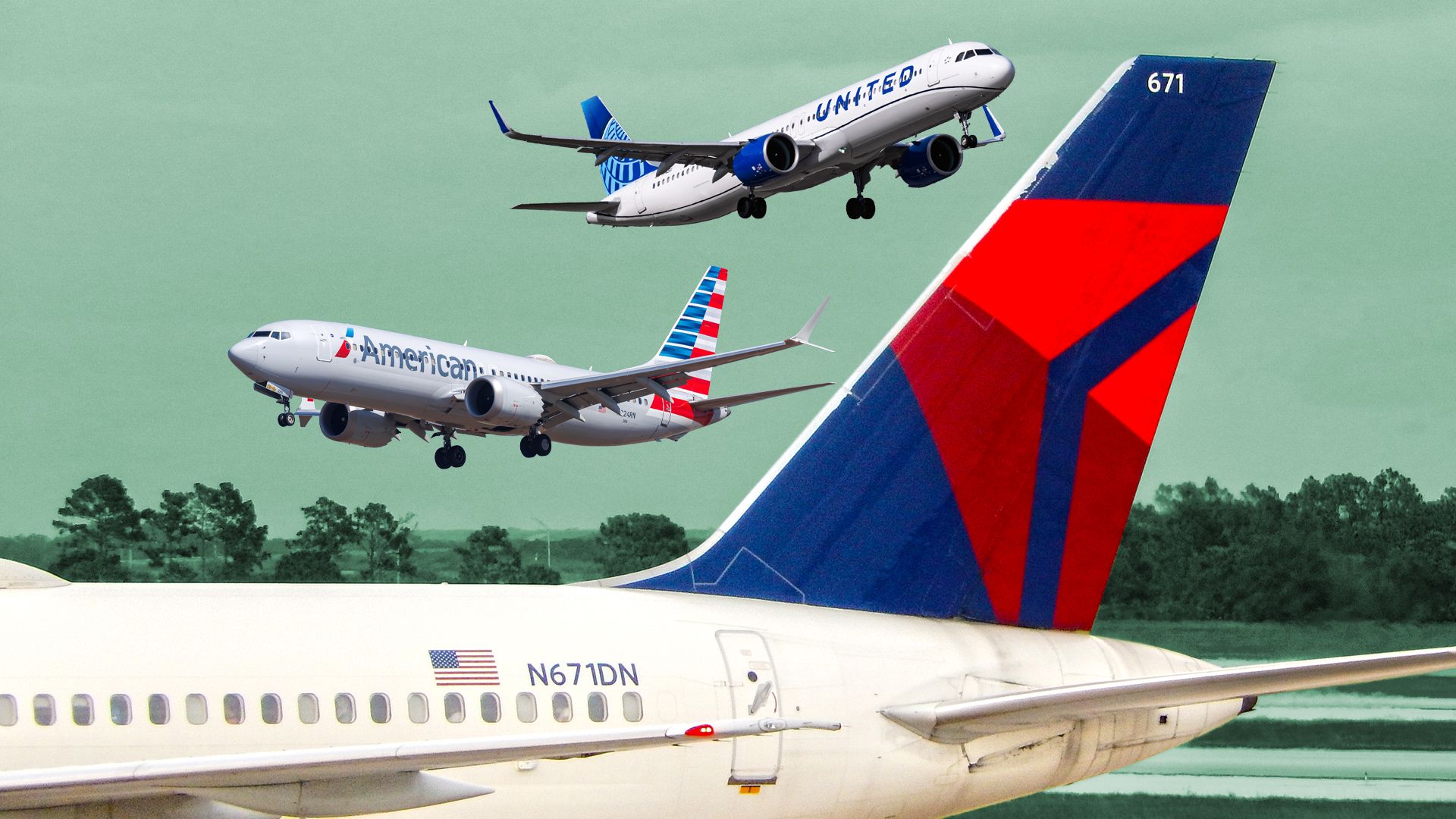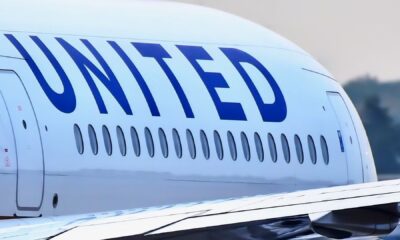Business
United Airlines Leads Global Pilot Employment Amid Hiring Surge

The aviation industry has witnessed significant changes as United Airlines emerges as the largest employer of pilots in the world, with a total of 17,813 professional pilots and flight crew members. This figure positions United ahead of its closest competitor, Delta Air Lines, which employs 17,347 pilots, a difference of just 466. The surge in pilot employment is a response to the industry’s recovery following the COVID-19 pandemic and the ongoing need to fill positions left by retiring pilots.
Largest Airlines by Pilot Employment
When evaluating the largest airlines globally, metrics often highlight the dominance of the “Big Three” US airlines: United, American, and Delta. These airlines consistently rank at the top in various categories, including available seat miles and revenue seat miles. According to multiple sources, the rankings for 2024 reveal that United Airlines leads in the following metrics:
– Most available seat miles (ASMs)
– Most revenue seat miles (RPMs)
– Largest mainline aircraft fleet
– Most mainline employees
– Most destinations served
In terms of financial standing, Delta Air Lines ranks as the most valuable airline by revenue, assets, and market capitalization. American Airlines carries the most passengers, while FedEx Express leads in freight carried.
The demand for pilots is critical for these airlines, particularly as they expand operations. According to the Air Line Pilots Association (ALPA), the aviation workforce is still recovering from the pandemic, which saw a drop in pilot numbers due to retirements and vaccine mandates. The pandemic’s impact led to an unprecedented hiring boom, with over 13,000 new pilots hired in 2022 alone.
Current Hiring Trends and Future Outlook
The need for pilots is expected to remain high, particularly as approximately 42,000 airline pilots are projected to retire within the next 15 years. This impending wave of retirements necessitates a continuous influx of new pilots to sustain operations.
Tim Genc, executive editor of the Future and Active Pilots Alliance, noted that hiring rates have stabilized following the turbulence of the pandemic. While the hiring rate peaked in 2022, only 4,834 pilots were hired in 2024, a number more in line with a balanced market. Genc indicated that the pilot retirement peak is now forecasted for 2031, extending the timeline for addressing pilot shortages.
The recovery in air travel demand has been robust, particularly in the leisure sector. As COVID-19 restrictions have lifted, airlines are experiencing increased passenger numbers, although corporate travel demand remains below expectations. The aviation industry is navigating these changes while adapting to shifting consumer trends.
As airlines like United and Delta focus on enhancing pilot welfare, both companies have initiated programs aimed at improving working conditions. United Airlines’ Master Executive Council has launched a “Union First” campaign, prioritizing safety and scheduling for pilots. Delta’s recent contract agreements reflect a commitment to uphold pilot needs, ensuring compliance with negotiated terms.
In summary, United Airlines stands at the forefront of pilot employment, positioning itself as a leader in the aviation industry. The ongoing growth of the airline sector, coupled with significant pilot hiring initiatives, suggests a promising future for aspiring pilots, even as the industry adapts to economic fluctuations and changing traveler preferences.
-

 World14 hours ago
World14 hours agoCoronation Street’s Shocking Murder Twist Reveals Family Secrets
-

 Entertainment4 months ago
Entertainment4 months agoKate Garraway Sells £2 Million Home Amid Financial Struggles
-

 Entertainment3 months ago
Entertainment3 months agoAnn Ming Reflects on ITV’s ‘I Fought the Law’ Drama
-

 Health3 months ago
Health3 months agoKatie Price Faces New Health Concerns After Cancer Symptoms Resurface
-

 Entertainment3 weeks ago
Entertainment3 weeks agoCoronation Street Fans React as Todd Faces Heartbreaking Choice
-

 Entertainment3 months ago
Entertainment3 months agoCoronation Street’s Carl Webster Faces Trouble with New Affairs
-

 World4 days ago
World4 days agoKevin Sinfield Exceeds Fundraising Goal Ahead of Final Marathons
-

 Entertainment4 days ago
Entertainment4 days agoTwo Stars Evicted from I’m A Celebrity Just Days Before Finale
-

 World3 weeks ago
World3 weeks agoBailey Announces Heartbreaking Split from Rebecca After Reunion
-

 Entertainment3 months ago
Entertainment3 months agoWhere is Tinder Swindler Simon Leviev? Latest Updates Revealed
-

 Entertainment4 months ago
Entertainment4 months agoMarkiplier Addresses AI Controversy During Livestream Response
-

 Science2 months ago
Science2 months agoBrian Cox Addresses Claims of Alien Probe in 3I/ATLAS Discovery




















